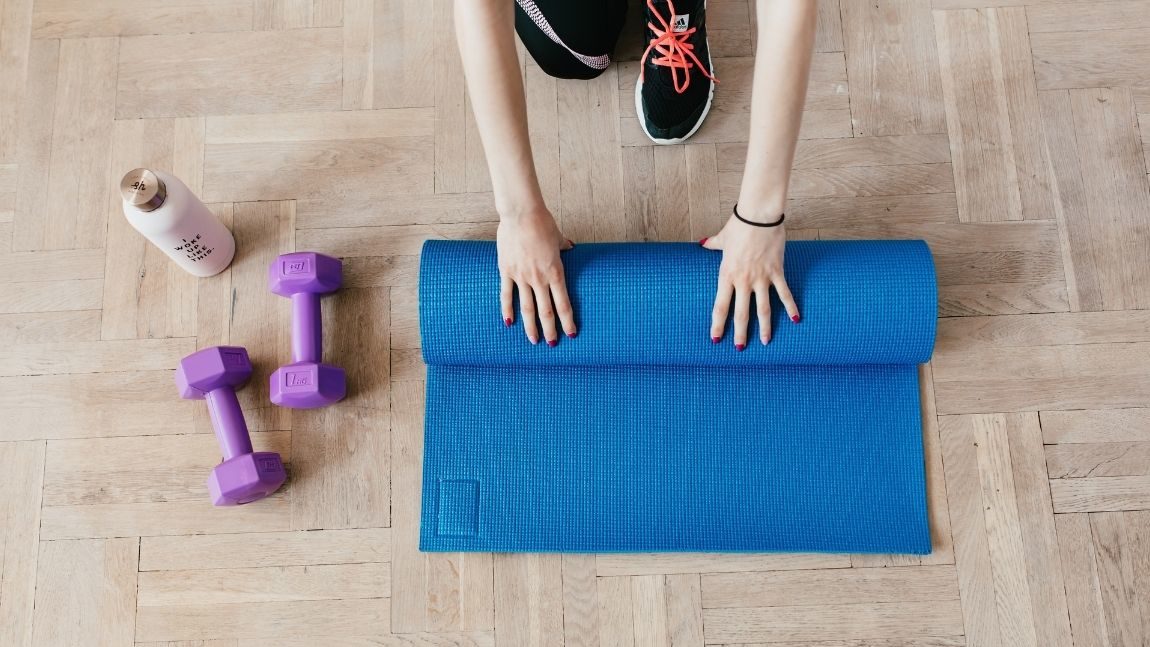It’s the standard advice that’s been given to people for decades in order to live a healthier and longer life – exercise. This, combined with a nutritious diet, are the two pillars of living a healthy lifestyle as a human being. It’s no different with pregnancy. Making sure you get enough nutrients and being physically active have a number of benefits not only for you, but for the baby too. Pregnancy can be a scary thing and first time moms can become overwhelmed thinking about the number of things that could go wrong. Regular exercise is one way you can feel in control of your health as you grow your baby. Additionally, knowing that the overwhelming majority of babies are born problem-free is a definite anxiety-easer!
The research shows that most women do not follow guidelines for exercise and are not as physically active as they should be during pregnancy. This can be due to some of the discomforts of pregnancy (nausea, fatigue, pain), lack of time, and also worry about how exercise will affect the baby. The good news is that the benefits mostly outweigh the risks as long as you exercise appropriately. The current recommendation is that pregnant women engage in some sort of aerobic exercise 2-4 times a week, for 30-60min at a time, or 150min/week. This can include activities like walking, jogging, exercise classes, stationary cycling and swimming. However, please consult your doctor before starting an exercise regime to make sure that your chosen activity is alright for YOU, and that you have no contraindications.
In the next sections we’ll go through all of the reasons why exercise is such a great thing to make a habit of during your pregnancy.
1. Improved cardiovascular health and better blood pressure control
During pregnancy there is a lot more pressure on the heart and circulatory system (see page 4), which can lead to high blood pressure especially during the later stages of pregnancy.
Regular exercise helps the pregnant body adapt to all of these changes in a better and healthier way; and may reduce the risk of developing life-threatening complications like gestational hypertension and pre-eclampsia. These are conditions you definitely want to avoid as not only can they negatively affect the growing baby, but they also come with long-term consequences for the mom. Exercise also helps reduce shortness of breath which can become a problem later in pregnancy.
2. Better blood flow to the placenta for a healthy baby
With regular exercise there are some great benefits for the baby, many of which centre around better blood flow to the placenta. With this comes enhanced nutrition and oxygen delivery to your baby which can decrease the chances of having a child with a low birth weight.
Some research has shown a reduction in blood supply to the baby during exercise, but this effect is reserved for elite athletes exercising at over 90% of their maximum heart rate. Simply put, moderate exercise which gets you breathing a little faster is probably not going to have any adverse effects for your baby and is actually likely to be beneficial for them in the long run.
3. Improved blood sugar control
Exercise is great for controlling blood sugar levels and reducing any resistance that the body may have to insulin (seen in diabetic conditions).
Making sure you’re exercising regularly during your pregnancy could do a lot to reduce your chances of developing gestational diabetes, particularly if you start early on in pregnancy.
4. Reduced risk for a cesarean delivery and a shorter labour
Several studies have shown that women who exercise regularly are less likely to need a cesarean delivery. This is classified as a major surgery and is associated with a longer recovery time after birth compared to a vaginal birth. We can’t control everything and in some cases a cesarean really is the best option. However, if you’re hoping to deliver vaginally, keeping up with an exercise routine may just help you achieve this goal!
Some research has shown that women who exercise regularly spend less time in labour and may be less likely to need induction or assistance with instruments during delivery. This makes for a shorter recovery after the baby is out, allowing the mom and baby to enjoy some early skin-to-skin contact almost immediately after the baby makes their entrance.
5. Constipation relief
Constipation can really ruin your day, so you’ll be happy to know that exercise can help! Aerobic exercise in particular (exercise that gets your heart beating a bit faster and causes you to breathe quicker) increases blood flow to the gastrointestinal tract. This in turn causes your intestines to contract more strongly, moving the food through your body at a faster rate and out the ‘exit’, leaving you feeling a lot lighter!
An easy way to incorporate some aerobic exercise is to go for a brisk 10-20min walk on a daily basis.
6. Relief of back and pelvic girdle pain
The body is designed to move and, when it doesn’t, things start to hurt. Pregnancy puts a huge strain on the body’s joints, ligaments and muscles; and two ways to combat this are to: 1) Keep the joints moving with mobility exercises to improve joint nutrition 2) Strengthen the muscles surrounding the back and pelvis to increase low back and pelvic stability.
A stronger body is more able to carry the weight of an extra person growing inside of you, and less likely to suffer from severe pain due to the pressure from the extra weight. Use this guide to build your own workouts, or follow along with our week-by-week workouts on Youtube.
7. A quicker return to fitness
If you are fit going into pregnancy and delivery, you’re going to bounce back faster after birth. Exercising while pregnant means a quicker return to exercise after the birth, and has the added bonus of helping you lose all of that pregnancy weight. Exercising after pregnancy also reduces your risk of developing blood clots and helps with mood.
Some precautions to follow
As you can see, there are some great benefits waiting for you with a regular exercise routine if you have a low-risk pregnancy. However, it’s important that you exercise in a way that keeps you and the baby safe. With that in mind, we’ve listed a few guidelines below:
- Do not start a new exercise routine without making sure that you are cleared for it by your doctor, even if your pregnancy is healthy.
- If you have a history of the following, it becomes doubly important to consult your doctor as a ‘normal’ exercise routine may not be appropriate for you: high blood pressure, diabetes, chest pain, smoking, high cholesterol, joint issues, gestational diabetes, or a multiple pregnancy e.g. twins or triplets.
- Stay well hydrated during exercise, having small sips of water before you feel thirsty.
- Avoid exercising in the heat and humidity as this can cause your core temperature to become too high. Wear breathable clothing while you work out to avoid overheating.
- Exercise at your own pace. You want your heart rate to rise and to breathe a bit faster, but you do not want to be completely breathless.
- If you feel dizzy or faint during a workout, stop immediately and sit down or lie on your left side. Once you’ve recovered, talk to your doctor before resuming workouts.
- If you get dizzy and faint when exercising flat on your back, turn on to your left side. Avoid these positions in the future.
- If you are new to exercise, start slowly. Begin with shorter durations and fewer reps, and make sure to exercise at a slow and steady pace. Remember to give yourself rest days as you build up your workouts.
- Avoid contact sports, scuba diving or activities where there is a risk of falling or abdominal impact e.g. horseriding, skiiing or hockey.
- Stop exercising and call your doctor if you notice any of the following while exercising: dizziness, breathlessness at rest, vaginal bleeding, painful cramps/contractions, headache, chest pain, calf pain/swelling, sudden muscle weakness or fluid leaking from the vagina.
Don’t let worry/fear stop you from reaping all of exercise’s benefits. If you need a little more guidance, chat to a physiotherapist or pregnancy-qualified trainer for some personal guidelines, or have a look at our Private Classes page!





Add Comment